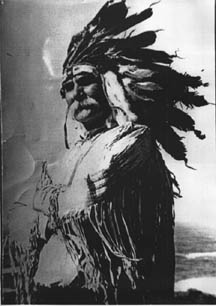Tututni

Tututni (also called Rogue River and Coquille) is the name of a Native American group originally located in southern Oregon in the United States. Rogue River (also called Tututni and Coquille) in its narrower sense refers to the group of related Athabascan tribes who speak two closely related languages Lower Rogue River and Upper Rogue River. In its broader sense, Rogue River refers to conglomeration of many tribal groups, belonging to the three language families: Athabascan, Takelma and Shastan. The total estimated population of these tribes in 1850 was about 9,500. The French Canadian employees of the Hudson's Bay Company called them all "coquins", meaning "Rogues", where the designation Rogue River comes from. The principal tribes grouped under the name Rogue River Indians (Tututni) (in its broader sense) were the Latgawa (Upland Takelma), Takelma (Lowland or River Takelma), Shasta (Chasta) and different subtribes of the Coquille (Ko-Kwell, Tututni), including the Upper Coquille (Mishikwutinetunne, Mishi-qute-me-tunne - ″the people dwelling on the river Mishi″), Shasta Costa, Dakubetede (Da-ku-be-te-de) (Applegate Area), Tututni (Lower Rogue River), Taltushtuntede or Tal-tuc-tun-te-de (Galice Creek Area) and Yugweeche (Eu-qua-chees) (Euchre Creek).
After the Rogue River Wars in 1856, bands of the Rogue River were split between the Confederated Tribes of Siletz and the Confederated Tribes of the Grand Ronde Community of Oregon, relocating to either the Siletz Indian Reservation north of the tribe's traditional lands or to the Grand Ronde Indian Reservation. Some of the tribal members were never captured and were forced to wander.